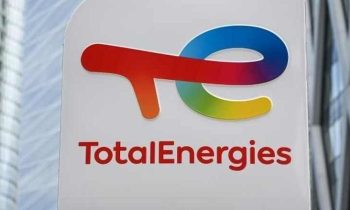The Federal Government realised over N200 billion and $ 7 million as signature bonuses from Marginal Oil Fields Bid exercise which drew to a close yesterday, Tuesday, with the award of licenses to those who won the bid which started two years ago, the Nigerian Upstream Regulatory Commission (NUPRC) has said.
Getting the Petroleum Prospecting Licences (PPL), of the 57 oilfields, it means that the coast is now clear for the winners of the awarded oilfields to move to the site for preliminary prospecting activities according to officials of NUPRC
Some of the winners of the bid rounds included Matrix Energy, SunTrust Oil, PetroGas Energy, Genesis Hydrocarbons, Samora Oil & Gas, Ardova, Terra Energy and Mainland Energy.
It also included Energia, Bono, Calm Marine, Virgin Forest, Tempo, Deep Offshore, North Oil, Shepherd Oil, Hilltop Global, Duport, among others.
Speaking at the ceremony where the awardees were given their licenses, Timipre Sylva, Minister of State for Petroleum Resources who described the bid rounds as a giant milestone for the current administration, revealed that about 70 percent of the entire bid winners had fully paid up.
According to him, the roadmap of the marginal field awards began with two fields awarded in 1999, adding that prior to the award, 13 fields had been awarded on land, eight fields in swamp, and nine fields offshore, leading to a cumulative of 30 marginal fields so far awarded in Nigeria.
“It is worthy of note to state here that this present award process saw 57 fields offered and over 70 percent of them have their signature bonuses fully paid. This indeed is a testament to the increasing interest in our petroleum operations,” he said
He told the awardees of Marginal oil field licenses that their assets are going to be fully governed by the provisions of the Petroleum Industry Act (PIA) 2021.
He said because of this, each successful field will be issued a Petroleum Prospecting Licence (PPL) in line with the PIA. This is a complete departure from what used to be where the marginal field owners had no licenses.
The minister said this marks the beginning of a new era for us in the oil and gas sector and I urge the awardees of the PPL to take full advantage of the opportunities being presented to exploit, develop, and bring the assets to productive use.” As you develop your assets with the special purpose vehicles (SPVs), ensure that good oilfield practice is employed, environmental considerations and community stakeholders’ management are not neglected.”
He said that the fiscal provisions in the PIA ranks among the best globally, and therefore urged the awardees to seize the opportunities to quickly develop their fields and enjoy the full benefits of the PIA.
“It is my strong belief that the awardees would take advantage of the current attractive oil prices to bring these fields into full production within a short period in line with Mr. President’s aspiration to increase production, grow reserves, and reduce the cost of production.
He said the awardees should bear in mind that he has charged the Nigeria Upstream Regulatory Commission (NUPRC) to provide every necessary support to ease and facilitate seamless upstream petroleum operations in line with the objectives and provisions of the PIA.
“The Commission will support any aspiration for upstream development with midstream facilities integration towards maximizing the value chain. It is envisaged that robust collaboration between the awardees and the Commission will lead to a better understanding of the challenges being encountered. Therefore, I encourage you to promptly reach out to the Commission for guidance and support including mediations when challenges arise.”
The roadmap of our marginal field awards began with two (2) fields awarded in 1999. Prior to this award, thirteen (13) fields had been awarded on land, eight (8) fields in swamp and nine (9) fields offshore leading to a cumulative of thirty (30) marginal fields so far awarded in Nigeria. It is worthy of note to state here that this present award process saw fifty-seven (57) fields offered and over 70% of them have their signature bonuses fully paid. This indeed is a testament to the increasing interest in our petroleum operations
Also, the NUPRC used the occasion to unveil the Template and Procedure Guide for the Host Communities’ Development Trust (HCDT) for commencement of implementation of the provisions of Section 235 of the Petroleum Industry Act (PIA) 2021.
The unveiling of the template on host communities fund administration was a major development for oil-producing areas of the Niger Delta who are expected to benefit from the three percent operating expenses of oil companies in the area.
Section 235 of the PIA provides for the incorporation of Host Communities Development Trust by the Settlors, that is, the oil and gas companies, for the benefit of their hosts. It places the responsibility to set up the HCDT and appoint the Board of Trustees (BoT) on the companies in consultation with the host communities.
In addition, Section 247 of the Act requires the BoT to set up a management committee to handle the general administration of the fund.
The HCDT provided by the PIA proposes to advance the development of the host communities within the scope of funds available to the BoTs for such purposes. It is also envisaged that sabotage of oil and gas infrastructure will be reduced since local communities now have a slice of the pie.
Since the regulations, which were officially unveiled by the government are now ready, the managers of the fund should be announced anytime soon.
In his remarks at the event Gbenga Komolafe, Chief Executive of the NUPRC noted that the commission was faced with several constraints during the course of the exercise which has now been surmounted.
He listed some of them as the COVID-19 interruption, partial payment of signature bonuses by some of the awardees, and the unwillingness of co-awardees to work together in forming SPVs for field development.
The process which commenced in 2020 had been bogged down by bureaucratic challenges, meaning that the actual drilling for oil had yet to effectively take off after a long time, although 161 companies were eventually shortlisted to advance to the final stage from 591 entities that applied for pre-qualification.
The then head of the defunct DPR, which has now transformed into the NUPRC, Sarki Auwalu, had said the exercise was worth roughly $500 million in signature bonuses
“Again, it is noteworthy that the 2020 marginal field bid round exercise in respect of which PPLs are being issued today has attracted government revenue of about N200 billion and $7 million respectively,” he stressed.
He noted that the NUPRC would continue to provide a predictable and enabling regulatory environment to operators in line with its technical and commercial statutory mandates with a view to optimising the development and exploitation of the nation’s hydrocarbon resources.
Komolafe lamented that Nigeria currently wasn’t meeting its oil production quota, stating that it was the reason Nigeria wasn’t feeling the positive impact of the current surge in crude prices.
“It is worthy of note that the average price of crude oil in recent months has been above $100 per barrel. This upward swing in market fundamentals is largely associated with the Russian-Ukraine conflict.
“However, the impact of the upswing in the crude oil price is not reflecting in the nation’s revenue earnings due to disruptions in our national oil production owing to sabotage, theft, and other operational challenges.
“Therefore, potential licensees are urged to take advantage of the current market realities and quickly bring their fields to production,” he said.
In addition, the NUPRC boss who announced the unveiling of the Template and Procedure Guide for the Host Communities Development Trust for commencement of implementation of the provisions of Section 235 of the PIA, 2021., said the commission was committed to transparency in its processes and has, therefore, implemented the Beneficial Ownership (BO) reporting, which requires full disclosure of ownership information.
“The objective is to ensure financial transparency, accountability, and public financial management among others,” Komolafe stated
Olusola Bello





